
Zanzibar City: The Jewel of the Indian Ocean
Zanzibar City, the heartbeat of the Zanzibar Archipelago, offers a mesmerizing blend of rich history, vibrant culture, and stunning natural beauty. As the main hub on the island of Unguja, Zanzibar City presents a unique blend of African, Arab, Persian, and European influences, making it a melting pot of traditions and architectural wonders. Stone Town, the historical core of Zanzibar City, is a UNESCO World Heritage site that stands as a testament to the island's colorful past. Wander through its winding alleys and discover intricately carved wooden doors, bustling bazaars, and ancient mosques. Don't miss the House of Wonders, the largest and tallest building in Stone Town, which provides a glimpse into the island's rich Swahili culture. Beyond its historical allure, Zanzibar City is renowned for its beautiful beaches and crystal-clear waters. A short drive from the city center will take you to pristine stretches of sand like Nungwi and Kendwa, perfect for sunbathing, snorkeling, and diving. The nearby Changuu Island, also known as Prison Island, offers the chance to see giant tortoises and enjoy serene coastal views. Food lovers will find Zanzibar City a culinary paradise, with an array of street food and fine dining options. From the aromatic spices in local dishes to fresh seafood at the Forodhani Gardens night market, the city's cuisine is sure to tantalize your taste buds. Don't forget to try the famous Zanzibar pizza, a unique and delicious treat. Whether you're a history buff, a beach lover, or a foodie, Zanzibar City has something to offer. Its warm, welcoming locals and vibrant atmosphere make it an unforgettable destination for any traveler.
Local tips in Zanzibar City
- Visit early in the morning or late in the afternoon to avoid the heat and crowds, especially in Stone Town.
- Try to visit during one of the local festivals, such as the Zanzibar International Film Festival or the Mwaka Kogwa festival, for a unique cultural experience.
- Always carry bottled water and stay hydrated, as the tropical climate can be very humid.
- Respect local customs and dress modestly, especially when visiting religious sites and rural areas.
- Negotiate prices at markets and with taxi drivers to ensure you get a fair deal.
- Hire a local guide to get the most out of your visit to historical sites like Stone Town.
- Keep an eye on your belongings, especially in crowded areas, to avoid petty theft.
Neighbourhoods in Zanzibar City
Zanzibar City: The Jewel of the Indian Ocean
Zanzibar City, the heartbeat of the Zanzibar Archipelago, offers a mesmerizing blend of rich history, vibrant culture, and stunning natural beauty. As the main hub on the island of Unguja, Zanzibar City presents a unique blend of African, Arab, Persian, and European influences, making it a melting pot of traditions and architectural wonders. Stone Town, the historical core of Zanzibar City, is a UNESCO World Heritage site that stands as a testament to the island's colorful past. Wander through its winding alleys and discover intricately carved wooden doors, bustling bazaars, and ancient mosques. Don't miss the House of Wonders, the largest and tallest building in Stone Town, which provides a glimpse into the island's rich Swahili culture. Beyond its historical allure, Zanzibar City is renowned for its beautiful beaches and crystal-clear waters. A short drive from the city center will take you to pristine stretches of sand like Nungwi and Kendwa, perfect for sunbathing, snorkeling, and diving. The nearby Changuu Island, also known as Prison Island, offers the chance to see giant tortoises and enjoy serene coastal views. Food lovers will find Zanzibar City a culinary paradise, with an array of street food and fine dining options. From the aromatic spices in local dishes to fresh seafood at the Forodhani Gardens night market, the city's cuisine is sure to tantalize your taste buds. Don't forget to try the famous Zanzibar pizza, a unique and delicious treat. Whether you're a history buff, a beach lover, or a foodie, Zanzibar City has something to offer. Its warm, welcoming locals and vibrant atmosphere make it an unforgettable destination for any traveler.
When is the best time to go to Zanzibar City?
Iconic landmarks you can’t miss
Old Fort
Explore the historic Old Fort in Zanzibar, a stunning fortress that showcases the island's rich heritage and vibrant culture.
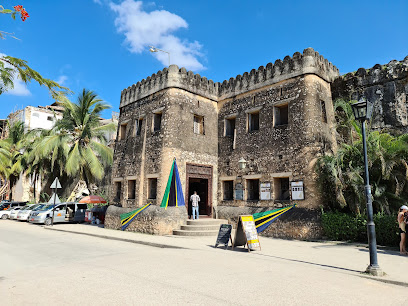
Zanzibar Spice Community Shop
Explore the vibrant flavors of Zanzibar at the Spice Community Shop, where the rich history of spices comes alive in the heart of Stone Town.
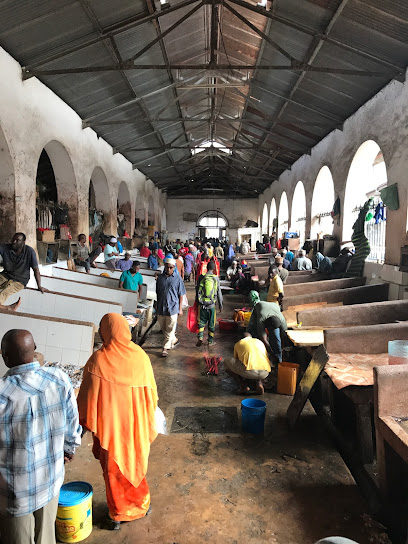
Cape Town Fish Market Zanzibar
Experience the freshest seafood at Cape Town Fish Market Zanzibar, where culinary artistry meets stunning ocean views in the heart of Forodhani Park.
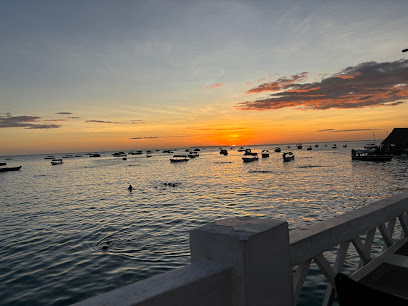
Darajani Bazaar
Discover the vibrant atmosphere of Darajani Bazaar, Zanzibar's bustling market filled with fresh produce, local crafts, and a taste of authentic culture.
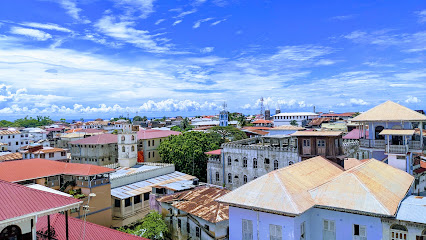
East Africa Slave Trade Exhibition (Slave Chambers - Cathedoral Church Of Christ)
Discover the profound history of the East Africa Slave Trade at the exhibition in Stone Town, Zanzibar, where stories of resilience and remembrance come alive.
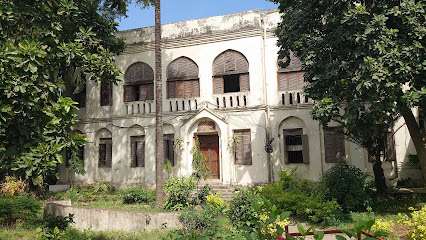
Stone town market
Immerse yourself in the vibrant culture of Zanzibar at the Stone Town Market, the perfect place for authentic local crafts, spices, and delicacies.
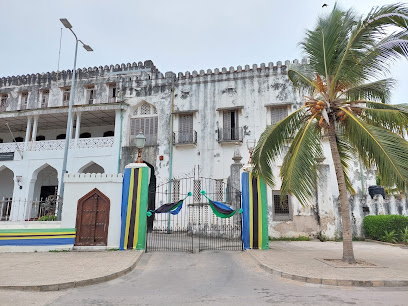
Jamhuri Gardens
Explore the natural beauty of Jamhuri Gardens, a serene park in Zanzibar filled with lush greenery, vibrant flowers, and tranquil spaces for relaxation.
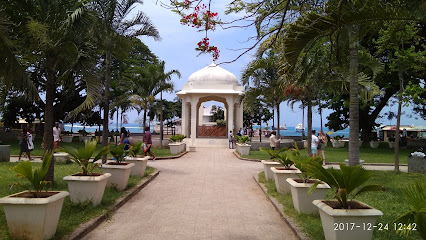
Karume Monument
Explore the Karume Monument in Zanzibar, a serene park honoring the island's rich history and culture amidst lush landscapes.
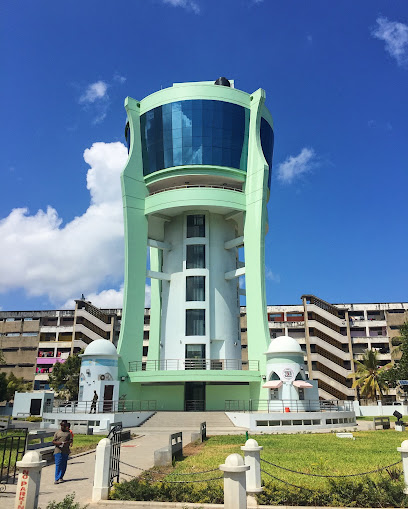
Memories Of Zanzibar
Explore the heart of Zanzibar at Memories of Zanzibar, where unique souvenirs and local crafts await every traveler.
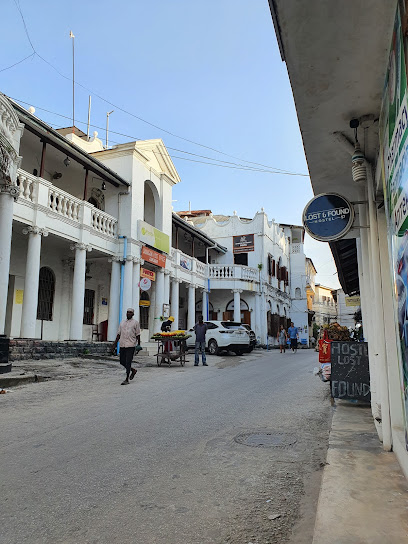
Old Slave Market/Anglican Cathedral
Explore the poignant history of the Old Slave Market and Anglican Cathedral in Zanzibar, a profound museum that reflects on the island's complex heritage.
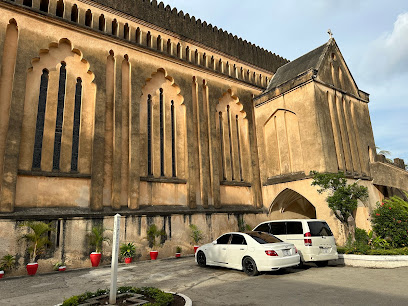
Freddie Mercury Museum
Discover the world of Freddie Mercury in Zanzibar at his dedicated museum, a journey through the life of a legendary musician and cultural icon.
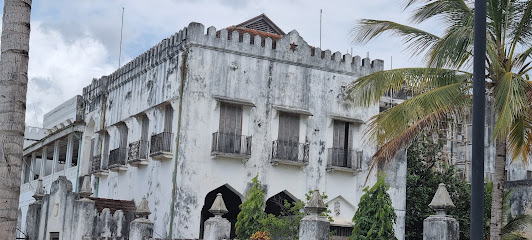
People's Palace Museum
Explore the People's Palace Museum in Zanzibar, a cultural gem showcasing the island's rich history and heritage through captivating exhibits and artifacts.
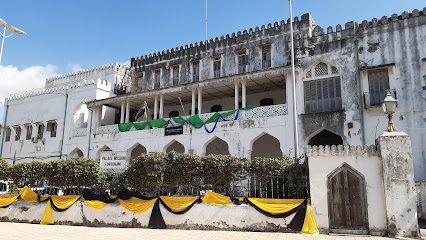
St Joseph's Cathedral
Discover the architectural beauty and cultural significance of St Joseph's Cathedral in Stone Town, Zanzibar - a must-visit for history and architecture lovers.
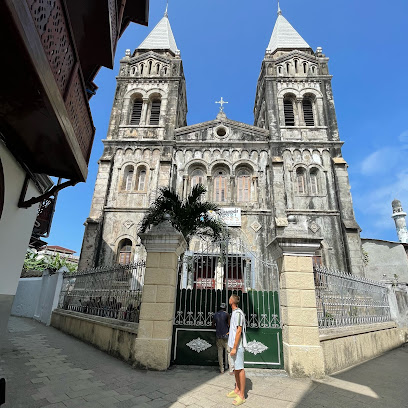
Christ Church Cathedral
Explore the historical and architectural beauty of Christ Church Cathedral in Zanzibar, a significant landmark in Stone Town's rich cultural tapestry.
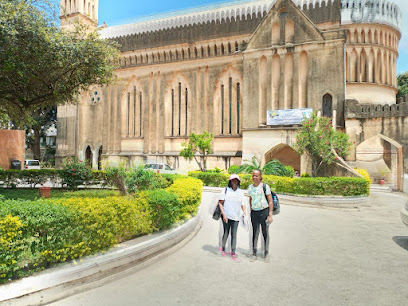
Peace Memorial Museum
Explore the rich history of Zanzibar at the Peace Memorial Museum – a journey through time in the heart of Stone Town.
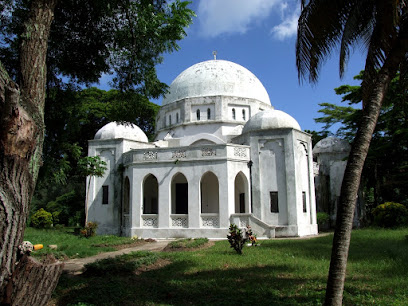
Unmissable attractions to see
Old Fort
Discover the captivating history and stunning architecture of the Old Fort in Zanzibar, a cultural landmark in Stone Town.
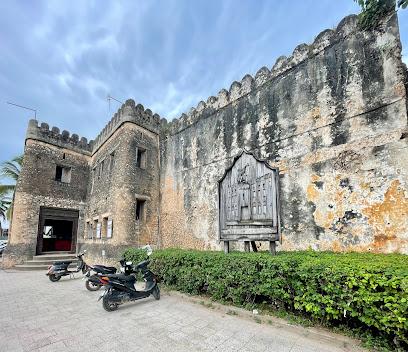
Unguja
Discover Unguja, a breathtaking island in the Zanzibar Archipelago known for its stunning beaches, vibrant culture, and rich historical sites.
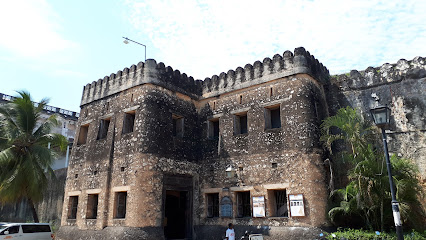
Jozani Forest
Explore the lush beauty of Jozani Forest in Mapopwe, Tanzania, a national reserve teeming with unique wildlife and vibrant ecosystems.

Lubaacris tours & Safaris
Experience the stunning beauty and vibrant atmosphere of Kendwa Beach in Zanzibar, where relaxation meets adventure in a tropical paradise.
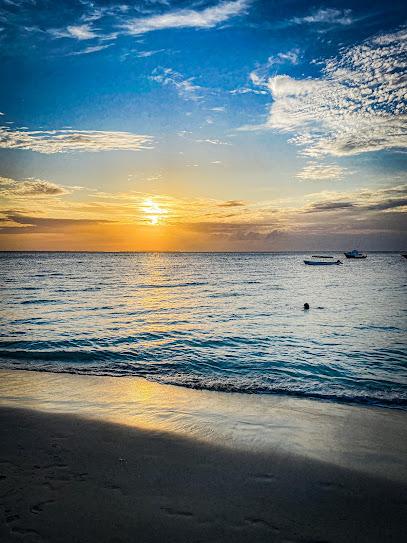
Kuza Cave
Explore the natural beauty and cultural heritage of Kuza Cave in Jambiani, a must-visit destination in Zanzibar for adventure and tranquility.
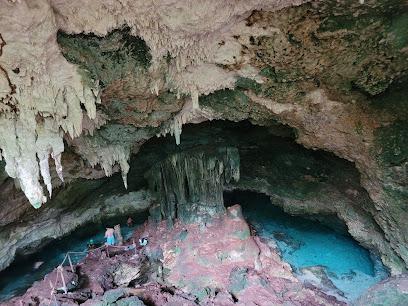
Nungwi Mnarani Aquarium
Explore the vibrant marine life at Nungwi Mnarani Aquarium, a key attraction for eco-conscious tourists in Zanzibar, blending fun and education.
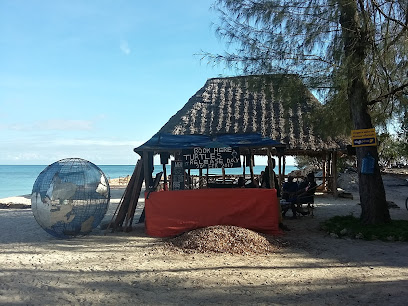
Karume Monument
Karume Monument: A Serene Park in Zanzibar Celebrating Cultural Heritage and Natural Beauty.
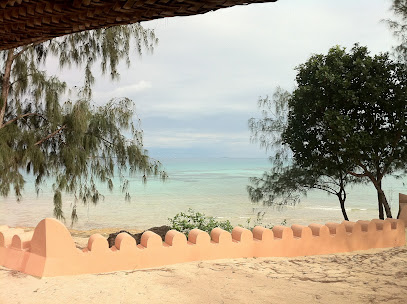
Cheetah's Rock
Discover the beauty of rescued wildlife at Cheetah's Rock in Zanzibar, where conservation meets unforgettable experiences.
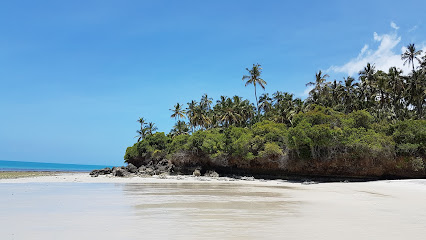
Mnemba Island
Escape to Mnemba Island, a secluded paradise in Zanzibar with pristine beaches, vibrant coral reefs, and luxury accommodations for the ultimate getaway.
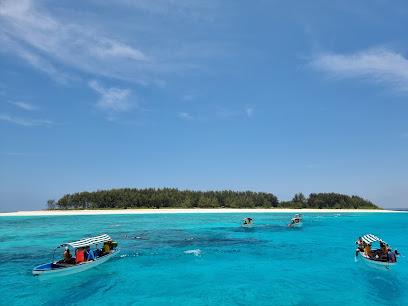
MAALUM
Explore Paje, Zanzibar's breathtaking nature preserve with stunning beaches, vibrant coral reefs, and thrilling kitesurfing opportunities.
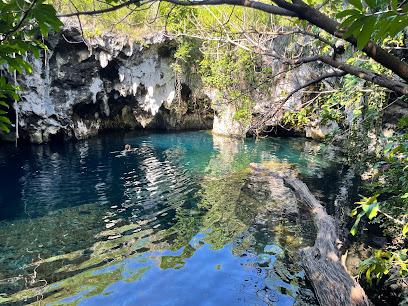
Tangawizi Spice Farm
Discover the aromatic world of spices at Tangawizi Spice Farm, an essential stop for every traveler in Zanzibar.
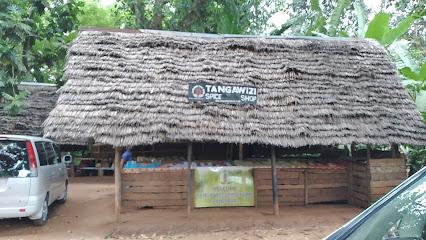
Freddie Mercury Museum
Discover the Freddie Mercury Museum in Zanzibar, a heartfelt tribute to the legendary Queen frontman, celebrating his life and musical journey.
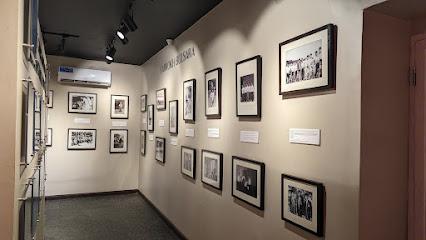
Zanzibar Park
Explore the beauty of nature and wildlife at Zanzibar Park, a unique blend of lush landscapes and fascinating animal exhibits in Zanzibar.
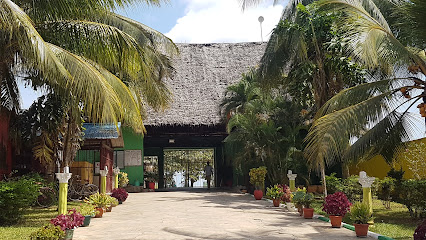
Gos tour in #zanzibar. Get your guide for slave market & Stone town city
Explore the deep historical roots of Zanzibar at the Slave Market Exhibition Museum, a vital site for understanding the island's past.
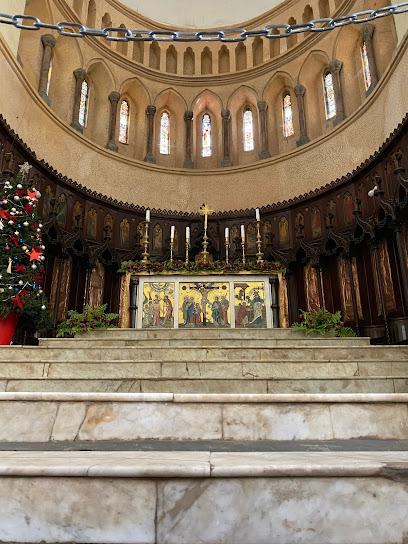
Tortoise Sanctuary
Explore the enchanting Tortoise Sanctuary in Zanzibar and witness giant tortoises while supporting wildlife conservation efforts.
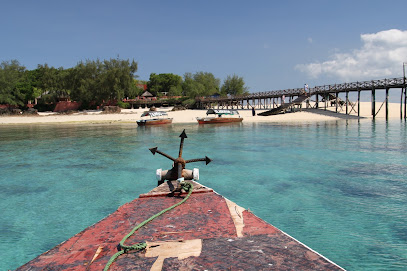
Essential places to dine
The Rock Restaurant Zanzibar
Experience exquisite seafood dining with breathtaking views at The Rock Restaurant Zanzibar - where every meal is an adventure.
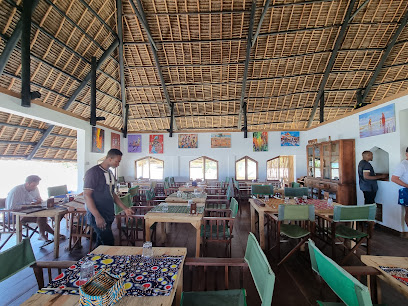
Lukmaan Restaurant
Discover authentic Zanzibari cuisine at Lukmaan Restaurant - where every meal tells a story of flavor and culture.
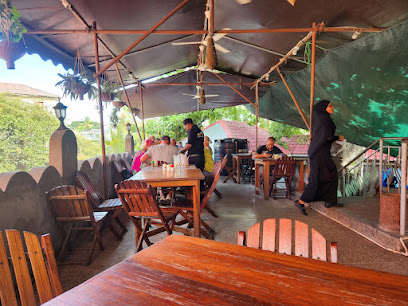
Cape Town Fish Market Zanzibar
Experience exquisite seafood dining at Cape Town Fish Market Zanzibar, where fresh catches meet stunning ocean views in a vibrant atmosphere.
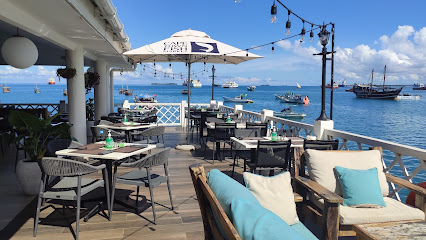
6 Degrees South
Savor delicious local and international dishes at 6 Degrees South in Zanzibar's vibrant Stone Town - an unforgettable culinary adventure awaits!
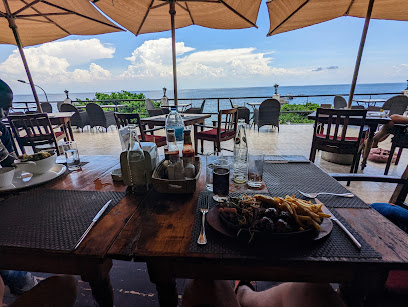
Beach House Zanzibar
Discover the vibrant flavors of Beach House Zanzibar - where fusion cuisine meets exquisite cocktails in the heart of Stone Town.
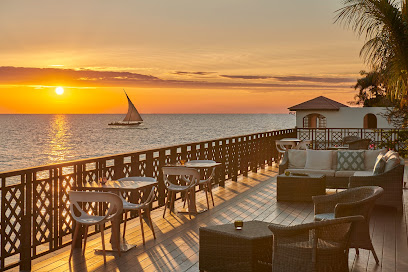
Mr. Kahawa Café, Restaurant & Accommodation
Experience delightful dining and cozy accommodations at Mr. Kahawa Café on Paje Beach, Zanzibar - your perfect beach getaway.
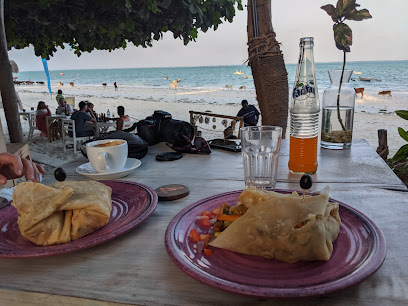
Stone Town Cafe
Experience the essence of Zanzibar at Stone Town Cafe - where local flavors meet global influences in a charming setting.
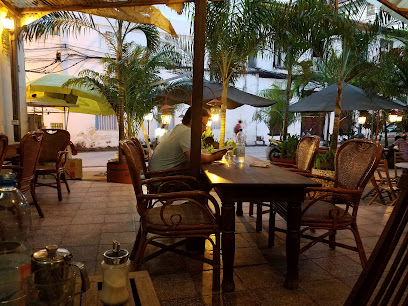
Da Luigi Ristorante - Pizzeria
Savor authentic Italian cuisine at Da Luigi Ristorante - Pizzeria in Stone Town, Zanzibar – where every bite transports you to culinary bliss.
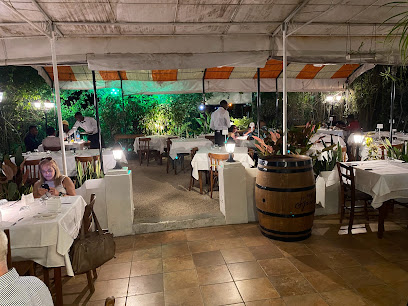
The Silk Route
Discover authentic Indian flavors at The Silk Route in Stone Town, Zanzibar - a culinary delight not to be missed on your travel journey.
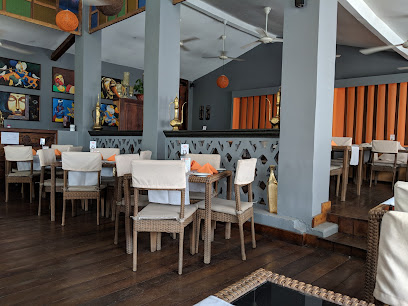
Hello Capitano Zanzibar
Discover the authentic flavors of Zanzibar at Hello Capitano Zanzibar - where local ingredients meet vibrant culinary traditions.
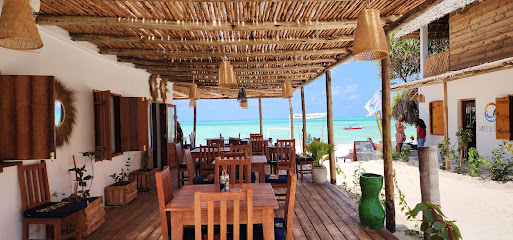
Archipelago Waterfront Zanzibar
Experience unforgettable dining at Archipelago Waterfront Zanzibar with exquisite seafood and stunning ocean views in Stone Town.
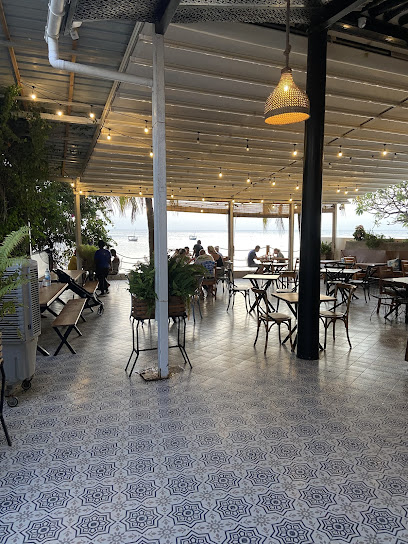
Livingstone Beach Restaurant
Discover authentic Zanzibari cuisine at Livingstone Beach Restaurant while enjoying breathtaking ocean views in Stone Town.
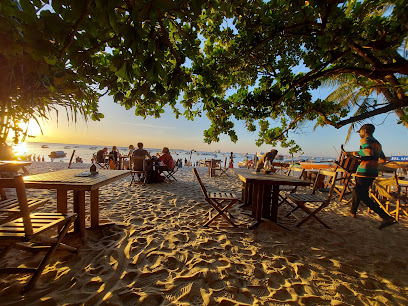
Masa Japanese Restaurant
Experience authentic Japanese cuisine with stunning views in Stone Town at Masa Japanese Restaurant.
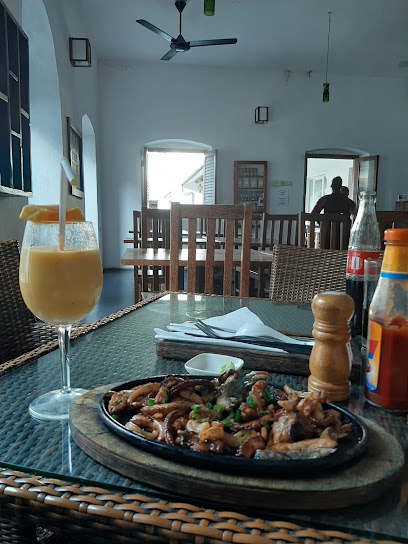
Secret Garden
Experience authentic Zanzibari cuisine amidst lush greenery at Secret Garden in Stone Town.
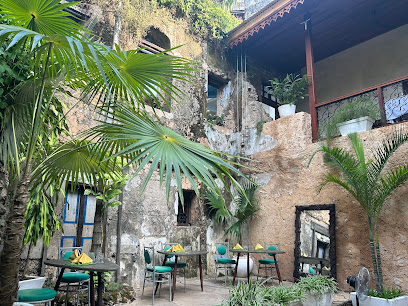
Harbour Indian Kitchen by Chili & Lime
Experience authentic Indian flavors at Harbour Indian Kitchen in Zanzibar's historic Stone Town - a must-visit dining destination for food lovers.
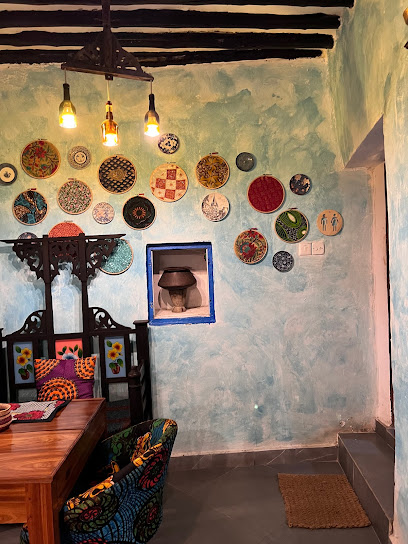
Markets, malls and hidden boutiques
Zanzibar Spice Community Shop
Explore the Zanzibar Spice Community Shop, a vibrant market celebrating the island's rich spice heritage with exotic flavors and local treasures.
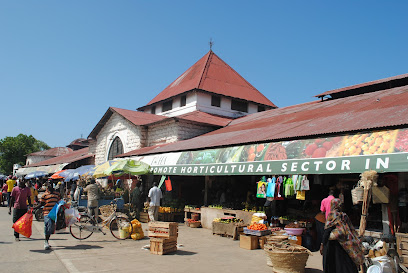
Darajani Bazaar
Explore the vibrant Darajani Bazaar, a bustling produce market in Stone Town, Zanzibar, where local culture meets culinary delights.
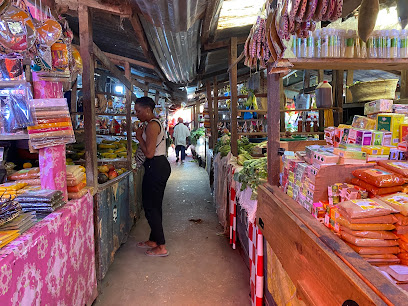
Michenzani Mall
Discover the vibrant Michenzani Mall in Zanzibar, where shopping meets local culture and culinary delights in an inviting atmosphere.
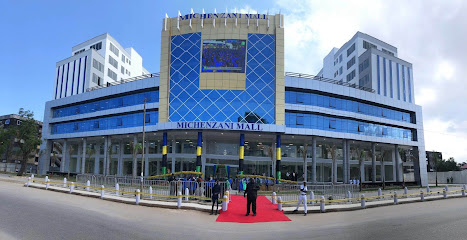
Stone town market
Discover the vibrant Stone Town Market in Zanzibar, a cultural melting pot of spices, crafts, and local flavors that promises an unforgettable shopping experience.
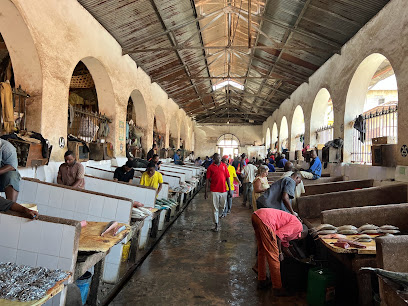
Memories Of Zanzibar
Explore authentic souvenirs and local crafts at Memories Of Zanzibar in the heart of Stone Town, where each piece tells a story.
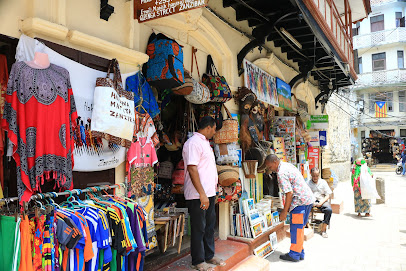
The Town Supermarket
Discover the vibrant atmosphere of The Town Supermarket in Zanzibar, your go-to spot for local products and a taste of island life.
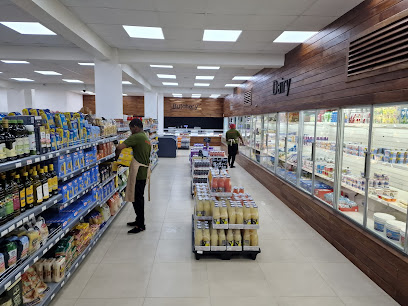
The Village Market - Paje
Explore the vibrant Village Market in Paje, Zanzibar, where local flavors and unique crafts bring the island's culture to life.
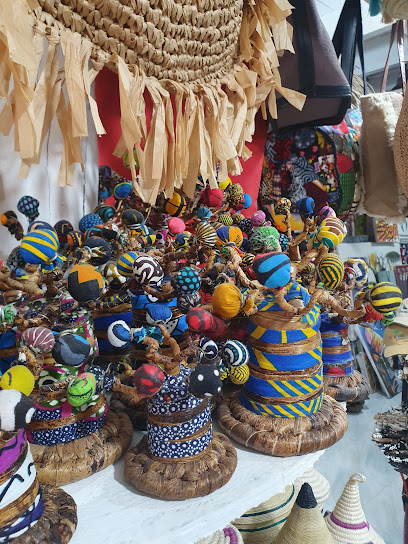
Uncle Soud Cosmetic
Discover beauty treasures at Uncle Soud Cosmetic, Zanzibar's premier cosmetics store offering local and international brands for every beauty enthusiast.
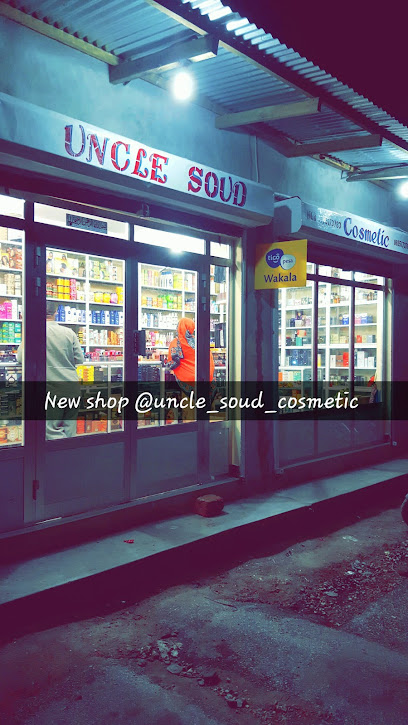
The Zanzibar Curio Shop
Explore The Zanzibar Curio Shop – a treasure trove of antiques and handmade crafts reflecting the rich culture of Zanzibar in the heart of Stone Town.
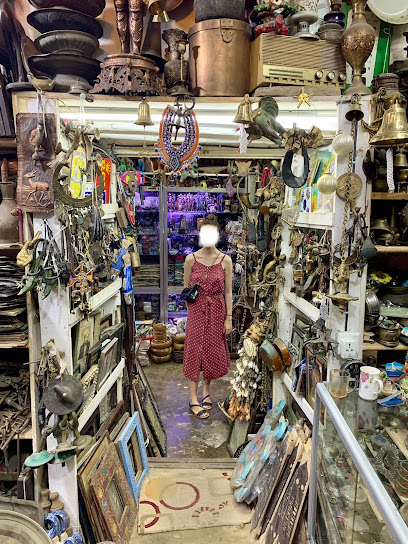
Zanzibar Quality Shop
Explore the vibrant culinary scene of Zanzibar at the Quality Shop, your one-stop destination for local ingredients and authentic flavors.
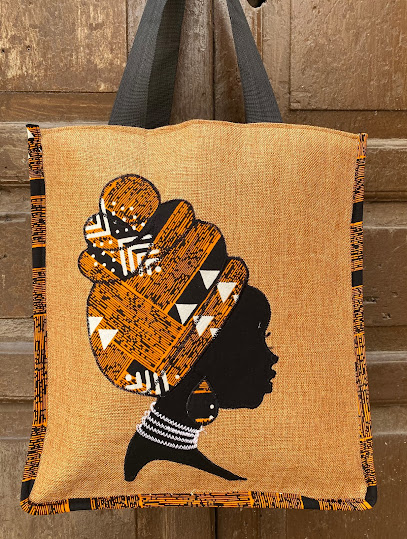
KITABWALLA BAGS, STATIONARY & TOYS SHOP.
Kitabwalla in Zanzibar: Your ultimate destination for unique gifts, toys, and local stationery crafted with love.
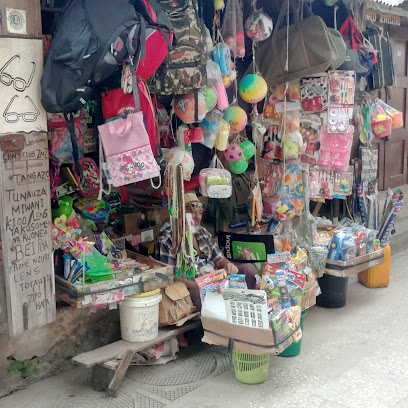
Vape shop near me & Smoke Shop near me & Tobacco shop near me & E Cigarette shop near me & free delivery in Zanzibar
Explore the vibrant vape culture in Zanzibar's Darajani Market with a diverse selection of vaporizers and accessories, perfect for enthusiasts and newcomers alike.

Fadhili Original
Explore the vibrant fashion of Zanzibar at Fadhili Original, a unique clothing store in the heart of Stone Town.
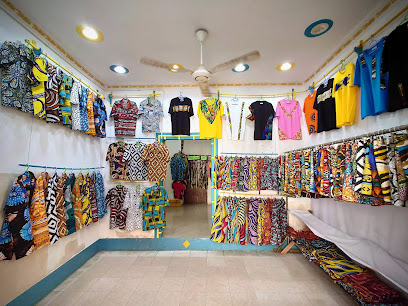
The Coins Shop
Uncover authentic gifts and artistic handicrafts at The Coins Shop in Stone Town, Zanzibar. A cultural treasure for every traveler.
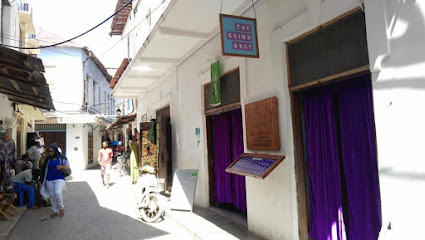
Alpha smoke
Explore the vibrant world of hookah, vaporizers, and perfumes at Alpha Smoke, a unique tobacco shop in Zanzibar's Miembeni district.

Essential bars & hidden hideouts
Beach House Zanzibar
Discover the vibrant flavors of Zanzibar at Beach House, where local ingredients meet international culinary creativity in a breathtaking seaside setting.
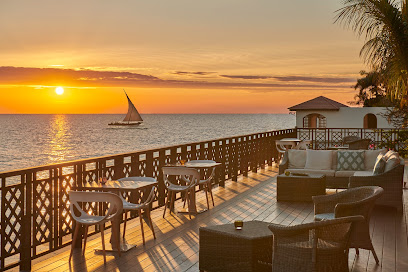
Mercury's Bar
Discover the vibrant ambiance and delicious local cuisine at Mercury's Bar, a charming beachside restaurant in Stone Town, Zanzibar.
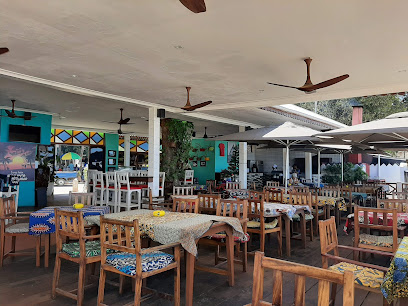
The Sunset Bar - Africa House Hotel
Discover an exquisite dining experience at The Sunset Bar, where vibrant flavors meet breathtaking views in the heart of Zanzibar.
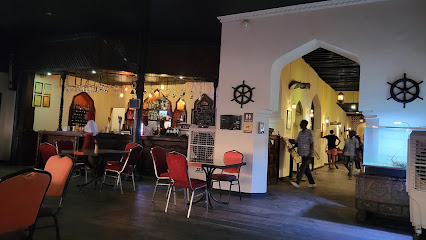
Bot club Zanzibar
Experience the vibrant nightlife and delicious local cuisine at Bot Club Zanzibar, the perfect retreat for food and cocktail lovers.
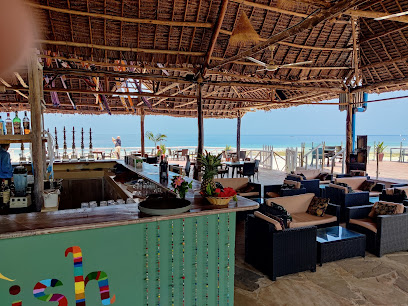
Janeth bar & restaurant
Experience the vibrant atmosphere and delightful flavors at Janeth Bar & Restaurant in Zanzibar, the perfect spot for relaxation and socializing.
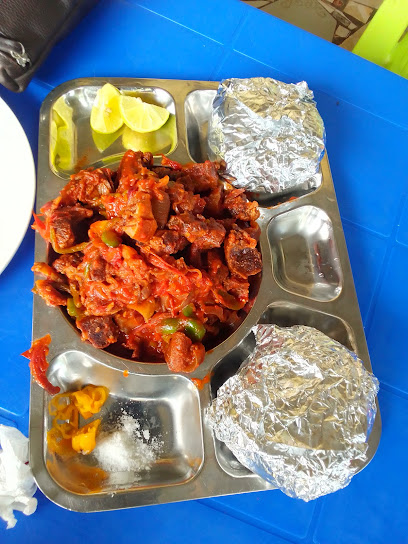
Vivi Café
Discover the vibrant culinary scene at Vivi Café in Stone Town, Zanzibar, where grilled delicacies meet rich cultural heritage.
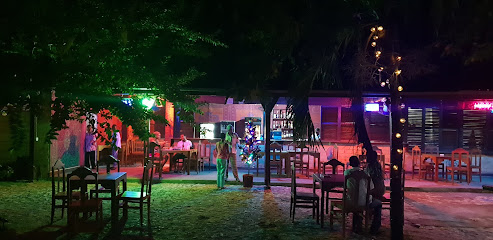
Masahani bar
Experience the vibrant atmosphere and stunning ocean views at Masahani Bar, a must-visit destination in Zanzibar's Stone Town.
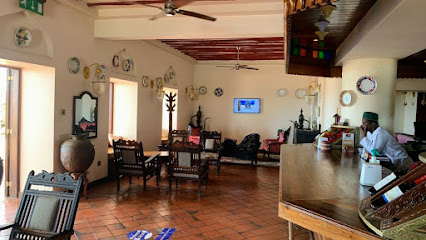
Living Room at Park Hyatt Zanzibar
Experience the elegance of the Living Room at Park Hyatt Zanzibar, where exquisite cocktails meet stunning views in the heart of Stone Town.
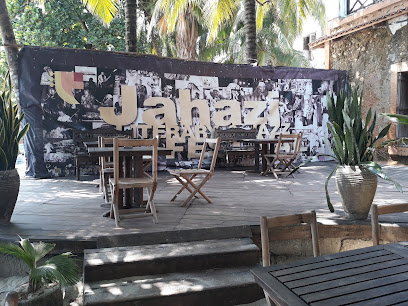
Floating Bar
Experience the ultimate relaxation at Zanzibar's Floating Bar, where stunning ocean views and delightful cocktails await.
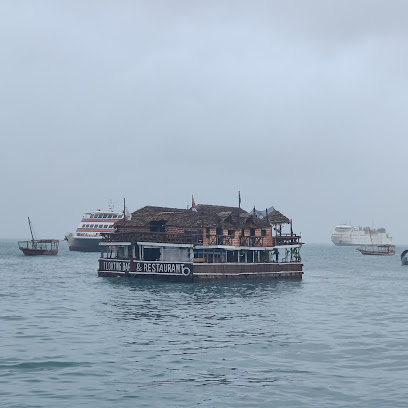
Baraza Shisha Bar
Experience the vibrant nightlife of Stone Town at Baraza Shisha Bar, where exotic shisha blends meet refreshing drinks in a lively atmosphere.
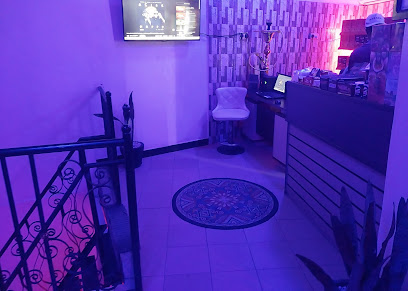
Downtown
Experience the vibrant nightlife of Downtown Zanzibar, where lively bars, local music, and stunning views create unforgettable memories.

Nyuki Bar
Experience the vibrant ambiance of Nyuki Bar in Zanzibar, where local flavors meet a relaxed atmosphere for the perfect getaway.

Polos Zanzibar
Discover the vibrant cocktail culture of Zanzibar at Polos Zanzibar, where refreshing drinks and a lively atmosphere await every visitor.
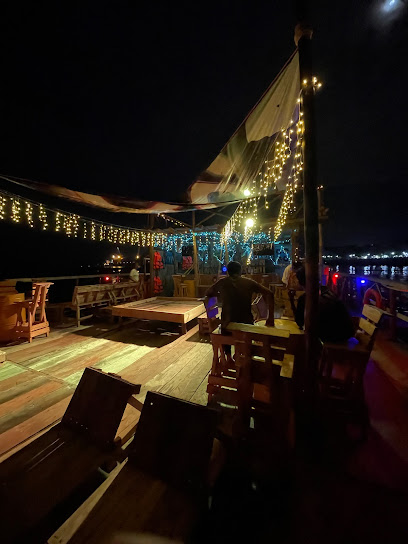
Mbawala bar
Discover the lively ambiance of Mbawala Bar in Zanzibar, where vibrant nightlife meets local charm and refreshing drinks await.
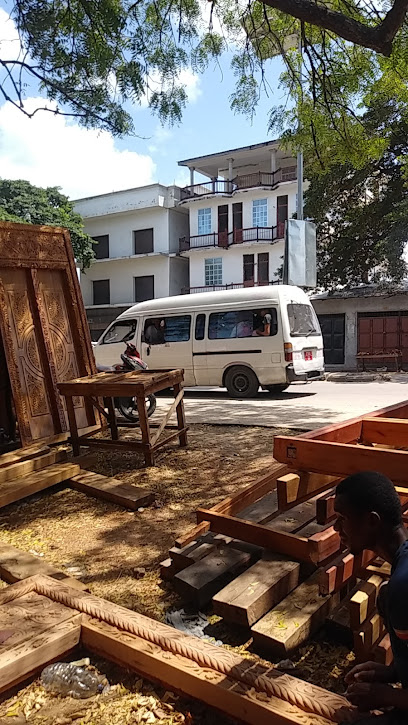
Local Phrases
-
- HelloJambo
[jahm-boh] - GoodbyeKwaheri
[kwah-heh-ree] - YesNdio
[n-dee-oh] - NoHapana
[hah-pah-nah] - Please/You're welcomeTafadhali
[tah-fah-dah-lee] - Thank youAsante
[ah-sahn-teh] - Excuse me/SorrySamahani
[sah-mah-hah-nee] - How are you?Habari gani?
[hah-bah-ree gah-nee] - Fine. And you?Nzuri. Na wewe?
[n-zoo-ree. nah weh-weh] - Do you speak English?Unazungumza Kiingereza?
[oo-nah-zoon-goom-zah kee-een-geh-reh-zah] - I don't understandSielewi
[see-leh-wee]
- HelloJambo
-
- I'd like to see the menu, pleaseNingependa kuona menyu, tafadhali
[nee-ngeh-pehn-dah koo-oh-nah meh-nyoo, tah-fah-dah-lee] - I don't eat meatSili nyama
[see-lee nyah-mah] - Cheers!Afya!
[ah-fyah] - I would like to pay, pleaseNingependa kulipa, tafadhali
[nee-ngeh-pehn-dah koo-lee-pah, tah-fah-dah-lee]
- I'd like to see the menu, pleaseNingependa kuona menyu, tafadhali
-
- Help!Msaada!
[msah-ah-dah] - Go away!Nenda zako!
[nen-dah zah-koh] - Call the Police!Piga simu polisi!
[pee-gah see-moo poh-lee-see] - Call a doctor!Piga simu daktari!
[pee-gah see-moo dahk-tah-ree] - I'm lostNimepotea
[nee-meh-poh-teh-ah] - I'm illNinaumwa
[nee-nah-oom-wah]
- Help!Msaada!
-
- I'd like to buy...Ningependa kununua...
[nee-ngeh-pehn-dah koo-noo-noo-ah] - I'm just lookingNatazama tu
[nah-tah-zah-mah too] - How much is it?Bei ni kiasi gani?
[beh-ee nee kyah-see gah-nee] - That's too expensiveHilo ni ghali sana
[hee-loh nee gah-lee sah-nah] - Can you lower the price?Unaweza kupunguza bei?
[oo-nah-weh-zah koo-poong-goo-zah beh-ee]
- I'd like to buy...Ningependa kununua...
-
- What time is it?Saa ngapi?
[sah-ah ngah-pee] - It's one o'clockNi saa moja
[nee sah-ah moh-jah] - Half past (10)Saa moja na nusu
[sah-ah moh-jah nah noo-soo] - MorningAsubuhi
[ah-soo-boo-hee] - AfternoonMchana
[m-chah-nah] - EveningJioni
[joh-nee] - YesterdayJana
[jah-nah] - TodayLeo
[leh-oh] - TomorrowKesho
[keh-shoh] - 1Moja
[moh-jah] - 2Mbili
[m-bee-lee] - 3Tatu
[tah-too] - 4Nne
[n-neh] - 5Tano
[tah-noh] - 6Sita
[see-tah] - 7Saba
[sah-bah] - 8Nane
[nah-neh] - 9Tisa
[tee-sah] - 10Kumi
[koo-mee]
- What time is it?Saa ngapi?
-
- Where's a/the...?Iko wapi...?
[ee-koh wah-pee] - What's the address?Anuani ni ipi?
[ah-noo-ah-nee nee ee-pee] - Can you show me (on the map)?Unaweza kunionyesha (kwenye ramani)?
[oo-nah-weh-zah koo-nee-oh-nyeh-shah (kweh-neh rah-mah-nee)] - When's the next (bus)?Basi lifuata lini?
[bah-see lee-foo-ah-tah lee-nee] - A ticket (to ....)Tiketi (kwa ....)
[tee-keh-tee (kwah)]
- Where's a/the...?Iko wapi...?
History of Zanzibar City
-
Zanzibar City, known locally as Unguja, has roots dating back to the 1st millennium AD. The city began as a small fishing village but grew in importance due to its strategic position on the Indian Ocean trade routes. By the 8th century, it had become a key Swahili trading settlement.
-
In the 10th century, Persian traders began to settle in Zanzibar, blending with the indigenous Swahili people. By the 17th century, the island came under the control of Omani Arabs, who established Zanzibar as a major center for the spice trade, particularly cloves, and the slave trade.
-
In 1840, Sultan Said bin Sultan of Oman moved his capital from Muscat to Zanzibar City, marking the start of the Sultanate of Zanzibar. This era saw the city flourish as a hub of commerce, attracting traders from as far as India and Europe. The Sultan’s Palace and the House of Wonders are architectural testaments to this period.
-
In 1890, Zanzibar became a British protectorate following the Heligoland-Zanzibar Treaty. This period saw significant infrastructure development, including the construction of roads, schools, and hospitals. The British also worked to abolish the slave trade, culminating in the closure of the Zanzibar slave market in 1909.
-
On January 12, 1964, the Zanzibar Revolution led by John Okello overthrew the Sultanate, resulting in the establishment of the People's Republic of Zanzibar and Pemba. This revolution was driven by dissatisfaction among the African population over Arab dominance and economic inequality.
-
In April 1964, just a few months after the revolution, Zanzibar merged with Tanganyika to form the United Republic of Tanzania. This political union aimed to stabilize the region and foster economic cooperation. Despite the union, Zanzibar retains a degree of autonomy with its own government and president.
-
Zanzibar City, particularly Stone Town, is a UNESCO World Heritage Site, recognized for its unique blend of African, Arab, Persian, Indian, and European influences. The narrow streets, historical buildings, and bustling bazaars of Stone Town offer a glimpse into the city’s rich cultural tapestry.
-
In recent years, Zanzibar City has seen rapid modernization while striving to preserve its historical and cultural heritage. Efforts have been made to restore and maintain historical sites, and the city has become a popular tourist destination known for its beautiful beaches, vibrant culture, and historical significance.
Zanzibar City Essentials
-
Zanzibar City is located on Unguja Island, part of the Zanzibar Archipelago in Tanzania. The main entry point is Abeid Amani Karume International Airport (ZNZ), which is about 5 kilometers from the city center. Direct flights are available from various international destinations, including Nairobi, Dubai, and several major European cities. Alternatively, you can take a ferry from Dar es Salaam to Zanzibar, which takes approximately 2 hours.
-
Within Zanzibar City, transportation options include taxis, dala-dalas (minibuses), and bicycles. Taxis are the most convenient but can be relatively expensive. Dala-dalas are a popular and affordable way to travel, although they can be crowded and less comfortable. Bicycle rentals are available and provide a great way to explore the city at your own pace. Car rentals are also available for those looking to explore more of the island.
-
The official currency is the Tanzanian Shilling (TZS). While some hotels and restaurants accept credit cards, it's advisable to carry cash, especially for smaller establishments and market purchases. ATMs are available in Zanzibar City, but it’s wise to have some shillings in hand as not all places accept card payments.
-
Zanzibar City is generally safe for tourists, but it’s important to stay vigilant. Areas such as Stone Town are safe during the day but can be less so at night. Avoid walking alone in poorly lit areas and be cautious of pickpockets in crowded places. Always keep an eye on your belongings and avoid displaying valuables openly.
-
In case of an emergency, dial 112 for immediate assistance. Hospitals and medical facilities are available in Zanzibar City, including Mnazi Mmoja Hospital. It's recommended to have travel insurance that covers medical emergencies. For minor health issues, pharmacies are widely available where you can purchase over-the-counter medications.
-
Fashion: Do dress modestly, especially when visiting religious sites. Avoid wearing revealing clothing. Religion: Do respect local customs and traditions. Cover your shoulders and knees when entering mosques and other religious sites. Public Transport: Do be patient and courteous. Dala-dalas can get crowded; always make room for others. Greetings: Do greet people with a handshake or a friendly 'Jambo' (hello). Showing respect through greetings is appreciated. Eating & Drinking: Do try local delicacies like Zanzibar pizza and fresh seafood. Don't drink tap water; always opt for bottled water.
-
To experience Zanzibar City like a local, visit the Darajani Market for fresh produce and spices. Engage with the local vendors; they are often friendly and eager to share stories. Don’t miss out on a sunset dhow cruise for a unique view of the city. Another local favorite is Forodhani Gardens, where you can enjoy an evening food market with a variety of local dishes.
Trending Landmark in Zanzibar City
-
Old Fort
-
Zanzibar Spice Community Shop
-
Cape Town Fish Market Zanzibar
-
Darajani Bazaar
-
East Africa Slave Trade Exhibition (Slave Chambers - Cathedoral Church Of Christ)
-
Stone town market
-
Jamhuri Gardens
-
Karume Monument
-
Memories Of Zanzibar
-
Old Slave Market/Anglican Cathedral
-
Freddie Mercury Museum
-
People's Palace Museum
-
St Joseph's Cathedral
-
Christ Church Cathedral
-
Peace Memorial Museum
Nearby Cities to Zanzibar City
-
Things To Do in Stone Town
-
Things To Do in Dar es Salaam
-
Things To Do in Tanga
-
Things To Do in Morogoro
-
Things To Do in Diani Beach
-
Things To Do in Mombasa
-
Things To Do in Malindi
-
Things To Do in Moshi
-
Things To Do in Dodoma
-
Things To Do in Arusha
-
Things To Do in Iringa
-
Things To Do in Lamu
-
Things To Do in Singida
-
Things To Do in Nairobi
-
Things To Do in Naivasha














